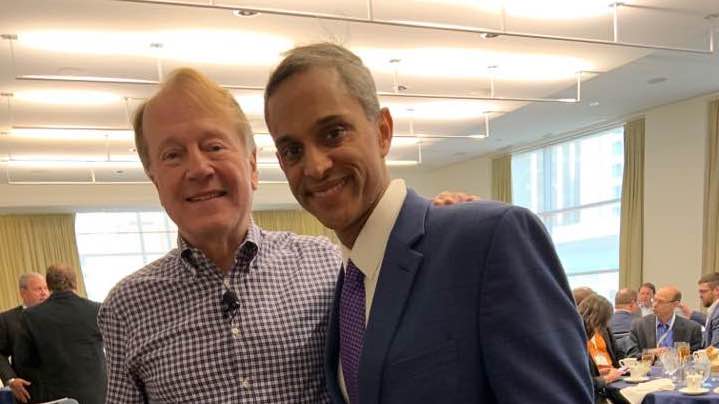A vote for H-1B visas: Congress can boost NC’s innovation economy – here’s how


Editor’s note: Steve Rao is At-Large Councilman and former Mayor Pro Tem for Morrisville, North Carolina and serves as a Board Member for the New American Economy.
MORRISVILLE – Everyone knows the U.S. immigration system is badly broken — but many don’t realize how badly visa-related logjams hurt North Carolina’s high-tech businesses and our innovation economy.
North Carolina’s tech industry supports over 895,000 jobs and $62 billion in wages, but these benefits depend on employers’ ability to hire and retain the right people. That’s why, I’m calling on our Congressional representatives to pass legislation that finally streamlines the archaic H-1B skilled-worker visa system and makes it easier for hard-working, highly educated immigrants to earn green cards and eventual citizenship.
of North Carolina companies operating in science, technology, engineering, and math (STEM) fields reported difficulty hiring in 2020, and two-thirds of employers say the skills they need simply aren’t present in the U.S. workforce. But while our state’s amazing universities attract plenty of international students in STEM fields, it’s incredibly difficult for U.S. employers to hire them once they graduate.

John Chambers, left, with Steve Rao
That’s because the number of H-1B visas is kept absurdly low—the cap hasn’t changed since before the iPhone was created—and is issued to employers through a lottery. In other words, the allowed worker supply doesn’t come anywhere close to meeting demand. And, worse, we’ve turned the process of hiring skilled workers a literal crapshoot — an expensive and frustrating process that leaves many employers unable to hire the skilled workers they need.
And the problems don’t stop there. If a prospective employee does manage to get a visa, they often face enormous challenges as they seek to gain more permanent status. The H-1B is designed to be a stepping stone to a green card for employees who play by the rules. But green cards are capped at 7 percent per country annually. That means immigrants from populous countries like India wind up having to wait decades before they can gain permanent status. In fact, the current wait for Indian green card applicants is about 150 years, meaning skilled workers can expect to spend their entire life stuck on a “temporary” visa.
It’s hard to overstate how damaging that is. In both Raleigh and Durham, according to New American Economy, almost 26% of the foreign-born population holds a graduate degree. Statewide, foreign workers account for 25% of our electronics workforce, and 35% of our state’s software developers; overall, almost one in five of our state’s STEM employees hail from overseas. But many of these people lack security here. They’re vital to our businesses and state economy, and yet on their temporary visas, it’s hard for them to travel, difficult for them to change employers, and virtually impossible for them to start businesses.
We will lose these workers and fail to attract more unless we make it easier to secure high-skilled work visas and green cards. I often speak to skilled immigrants who tell me they love our state, but that they’re thinking of returning to their home countries or moving to places such as Canada or Australia, where they know they’d be welcomed with open arms.
I know first-hand how important it is to allow skilled workers to put down roots. My parents came here from India so that my father could work as a rural surgeon. Because they were given a chance to build lives here, thousands of patients received quality healthcare, and I grew up as a proud American, dedicated myself to serving our community, and became our state’s first Asian American elected official.
Fortunately, a solution is at hand — if Congress decides to act. The Biden spending bill already includes an important measure to recapture up to 400,000 green cards that have gone unused in other immigration categories, and redeploy them to help reduce the backlog for skilled workers from populous countries.
That’s a good first step, but lawmakers should go further, and include measures to lift the H-1B quota. Our state’s vibrant tech industry is an economic powerhouse — but it can only stay strong, and keep creating jobs for everyone, if we allow businesses to hire the talent they need to grow.
